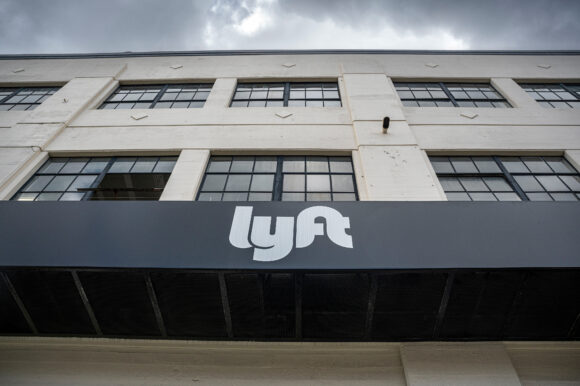Lyft Inc. is partnering with Waymo for the first time to offer robotaxi service in Nashville starting next year, a deal that helps it better compete with rival Uber Technologies Inc.
Alphabet Inc.-owned Waymo, which has been conducting testing in Nashville since March, will launch fully autonomous operations in the Tennessee capital in the coming months, it said Wednesday in a blog post. The rides will open to the public next year, first through the Waymo app and then on Lyft’s platform later in 2026. Shares of Lyft jumped as much as 16% after markets opened in New York, propelling the stock to the highest level since 2022. Uber’s stock fell as much as5.3%.
Flexdrive, Lyft’s fleet management subsidiary, will provide vehicle maintenance, infrastructure and depot operations for Waymo’s vehicles in the city, according to a statement from Lyft. Flexdrive currently offers car rentals to rideshare drivers in 24 US locations including Nashville.
As part of the partnership, Lyft will also construct a fleet management facility with charging and vehicle-service capabilities.
Waymo declined to disclose pricing for its Nashville rides or comment on whether fares will differ on the Waymo and Lyft apps. More details will be discussed next year, said Nicole Gavel, Waymo’s head of business development and strategic partnerships.
Lyft has been catching up with larger rival Uber in making driverless vehicles available to its rideshare customers. While this marks the first tie-up between Waymo and Lyft, Waymo is already an established partner with Uber. The two companies struck a multiyear deal in 2023, with Uber now offering Waymo trips in Phoenix, Austin and Atlanta.
Lyft made several similar agreements of its own last November, and just launched its first commercial pilot program in Atlanta with May Mobility last week. It’s expected to offer autonomous rides in more US markets as early as next year with other partners such as Intel Corp.-backed Mobileye Global Inc. and Austria’s Benteler Group. Lyft also has a deal with China’s Baidu Inc. to offer driverless rides in Europe.
The Waymo partnership underscores the pitch that Lyft executives have been making over the past year about the role the rideshare company can play as autonomous vehicles become more commonplace. With its Flexdrive unit, Lyft can offer its operational expertise on “vehicle positioning, uptime, all the things you need to make sure that the assets are utilized on the road as much as possible,” said Jeremy Bird, an executive vice president at Lyft in charge of driver experience.
To fund new facilities, Lyft will be “refactoring” the capital it’s allocated to Flexdrive rental locations and owning some rental cars to spend more on autonomous rollouts, Chief Executive Officer David Risher said in an interview on Bloomberg Television on Wednesday. “The good news is this will not be a significant change to the current strategy,” he added.
Waymo, which is offering hundreds of thousands of fully autonomous trips each week across five major US cities, has taken a varied approach in each market where it’s launched commercial ride-hailing services. It offers trips through its own app and operates its own depot in some cities, while partnering with third-party fleet operators and rideshare apps like Uber and Lyft in others.
“We are exploring multiple ways to market, to really multiply our efforts to be able to do that goal of getting Waymo out to more people in more places,” said Waymo’s Gavel in an interview.
Waymo is open to future launches with Lyft in other markets. “We’re very excited to start with Nashville,” she added. “We will want to grow it in the future.”
Photo: A Lyft drivers lounge in San Francisco. (Bloomberg)
Topics Sharing Economy Ridesharing
Was this article valuable?
Here are more articles you may enjoy.



 BMW Recalls Hundreds of Thousands of Cars Over Fire Risk
BMW Recalls Hundreds of Thousands of Cars Over Fire Risk  ‘Structural Shift’ Occurring in California Surplus Lines
‘Structural Shift’ Occurring in California Surplus Lines  A 10-Year Wait for Autonomous Vehicles to Impact Insurers, Says Fitch
A 10-Year Wait for Autonomous Vehicles to Impact Insurers, Says Fitch  Experian Launches Insurance Marketplace App on ChatGPT
Experian Launches Insurance Marketplace App on ChatGPT 

